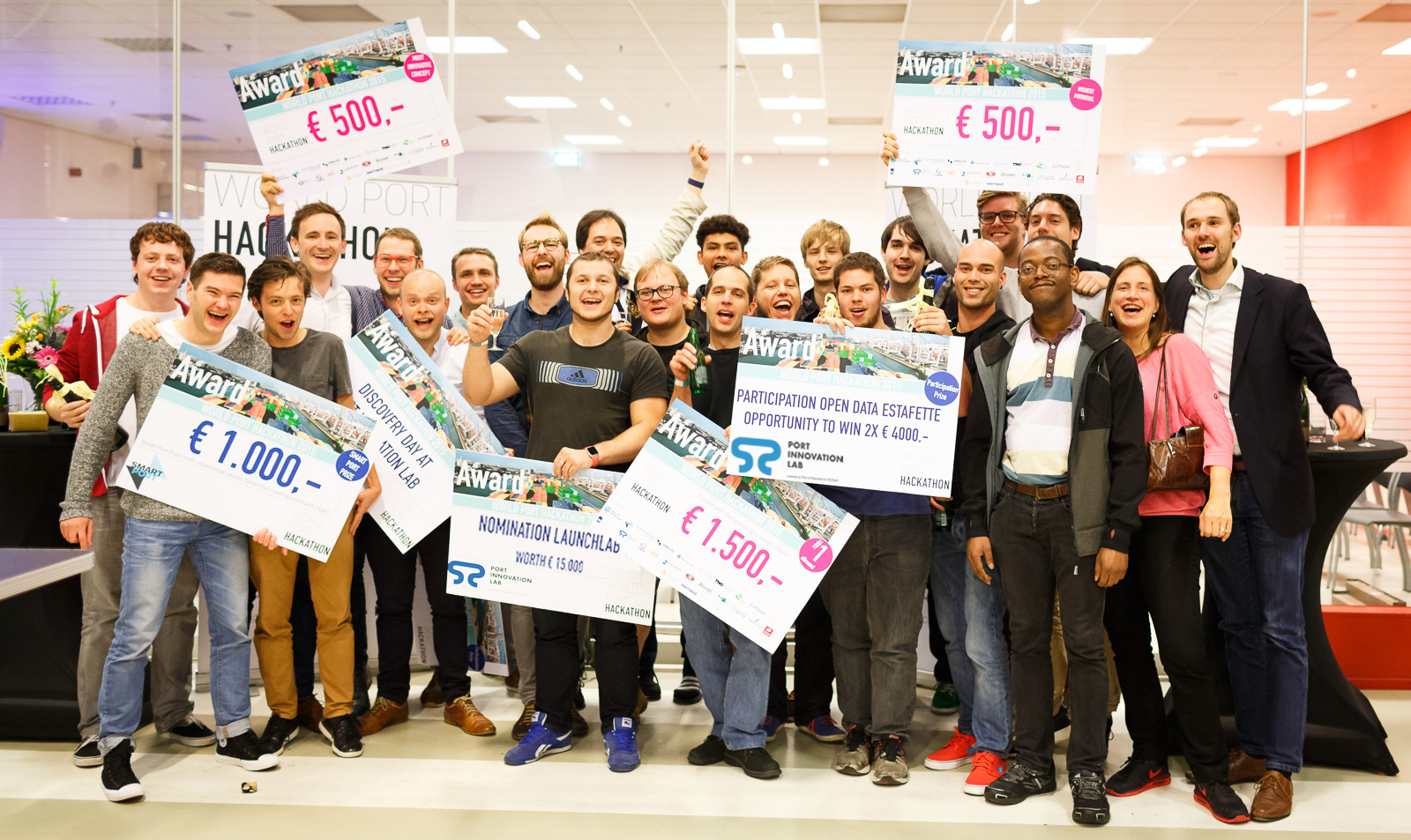I was part of a group that took part in the World Port Hackathon in Rotterdam from September 4 to 5. The theme of the event was to develop apps or concepts that improve Logistics and Connectivity, Infrastructure or Safety & Security at the port. There were about twenty teams participating in the event and our group Captain Co & Co won the Overall first prize as well as a nomination to participate in Innovation Lab. This article discusses some things I learnt by participating in this event.

First, have a good idea. Our group came up with the idea of making a chat app for port workers. It was an exciting idea. I didn’t know of any other such application on the market and chatting is something we do ubiquitously in the IT world. It was great to introduce such a concept to the shipping industry.
Second, it is important to delegate tasks effectively among team members. There were eight members from my team taking part in the event, four of whom were developers. Among us developers, we split the task of creating the app fairly quickly as the project started. For example two developers developed bots, one took care of the back end server and one handled the front end. The remaining team members handled other aspects like graphics design, testing, idea generation, some programming, getting information from relevant officials at the port concerning data, port processes, etc. and feeding that back to the team.
Third, plan your work carefully. Good communication is essentially when hacking. For example, I remember going away with one of my colleagues to a quiet place to discuss chat APIs, including what format to put data in when communicating between the server and the front end. We did this before starting to code. As such, we both knew how data will flow and could create our parts of the app in parallel, integrating the finished results fairly quickly afterwards. I believe other members had similar plans.
Fourth, you must work hard! Good things come with effort. We put in a good chunk of hours into our app. I remember seeing some other teams looking so relaxed and wondering what kind of apps they were building. As an official at the event later mentioned to us after the event, we looked like a CSI team while we worked. We spent several hours on the project on that Friday and even when the port closed for the night, we went back to our hotel and continued working on the project late into the night. It was rigorous, but fun!
Fifth, do not try to write pretty code. Write it fast and make it work! A hackathon is a hackathon, it’s not a time to write the best looking code. We developers had to create a chat app from scratch that met certain specification, including pulling port-related data, in a relatively short time span. As such on my part I had to write the shortest possible amount of code to get my part of the app working and nothing more. There was no time for fancy things like elaborate frameworks, automated tests, etc. Testing was manual.
Sixth, keep it simple and clean but make sure it works. This is very important in succeeding in a hackathon. Our team had to think carefully of what features we would be able to to our chat app add given the time constraint and available man power. Also, while we produced several interesting features in our app, there were times when we found that a proposed feature didn’t look or work as good as wanted it to. In such situations, we simply left out the feature. So, very important: If you are hacking together an app and one of your features doesn’t look nice, don’t be afraid to remove it. In short, we had to make sure that every feature presented worked. Our chat app was one of the few apps in the entire competition that actually did something; i.e. we could actually chat with it. Many other competitors just presented concepts, diagrams and so on.
Seventh and finally, present your product enthusiastically. We were very cheerful in our presentation of the end product. Our presenter spoke with confidence and all of us team members participated in the presentation by taking part in the chat right there and then.
In conclusion, I had a lovely time taking part in my first hackathon and being on the winning team. I learnt quite a few things about successfully hacking together an app within a short time including the importance of a good idea, delegating tasks effectively, careful planning, putting in your 100%, coding quickly, keeping it simple and effective presentation. Hope you enjoyed the read.
